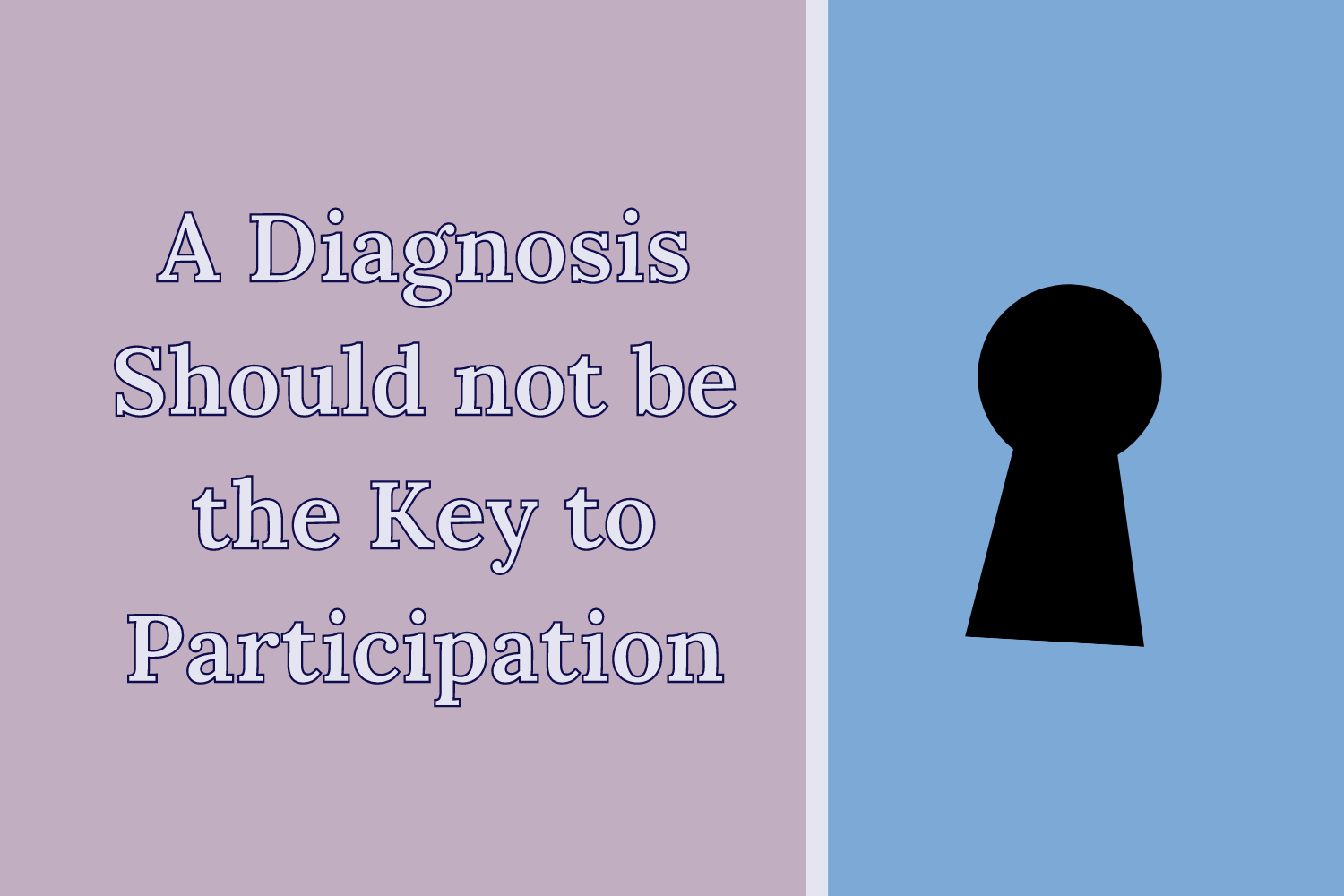I grew up with the medical model heavily influencing every policy and decision that was being made. The key thing you need as a disabled person in the medical model is a diagnosis, the proof that you are indeed disabled and in need of accommodations, supports, and services.
While a medical diagnosis can provide answers and a newfound freedom, it is also the deciding factor of whether you are able to have the support you need to succeed in this society. Whether it is for your education, your employment, participation in society, and even just living, the diagnosis can be the key to participating in society. However, it is not always easy to obtain that.
Different barriers can come up like the level of difficulties accessing medical services, whether the disability that is attempting to be diagnosed is simple to test and evaluate or does it take multiple tests and specialists with a waiting period between them all. I haven’t even mentioned how location, intersectionality, and discrimination heavily plays a role in the process.
So, why is a diagnosis so important?
Well, it is an answer to a problem that someone lives with. It can open doors, especially if the system is dependent on whether or not you are able to prove it. This is the issue. Does making spaces and activities accessible require individuals to provide proof that it is needed?
That is how the medical model defined accessibility within inclusion for a long time, especially when mainstreaming and integrating people with disabilities into society. The problem with this method? Accessibility only exists if there is a requirement to do it. A diagnosis is the proof that the requirement is there. None of the accommodations happens unless a medical profession signs that document.
Do you want to live in a society where we are only worthy of access and inclusion if we can prove that we so desperately need it?
Does leaving out people who temporarily need assistance for accessibility,
leaving out people whose disability is not easy to pinpoint and provide an answer,
leaving out people who do not want to disclose their medical history every 10 seconds,
leaving out people who experience barriers to the healthcare system, the society we want to live in?
The emphasis on the need for proof and existence of our struggles in itself is a barrier. We are moving more towards the social model of disability but our policies and laws are still dependent on our medical professionals providing the proof of our existence. While the concerns of providing supports to people who may not actually need the support can be a concern. It should not leave many people in the dust fending for themselves until that paper with the diagnosis finally shows up, if it ever does.

